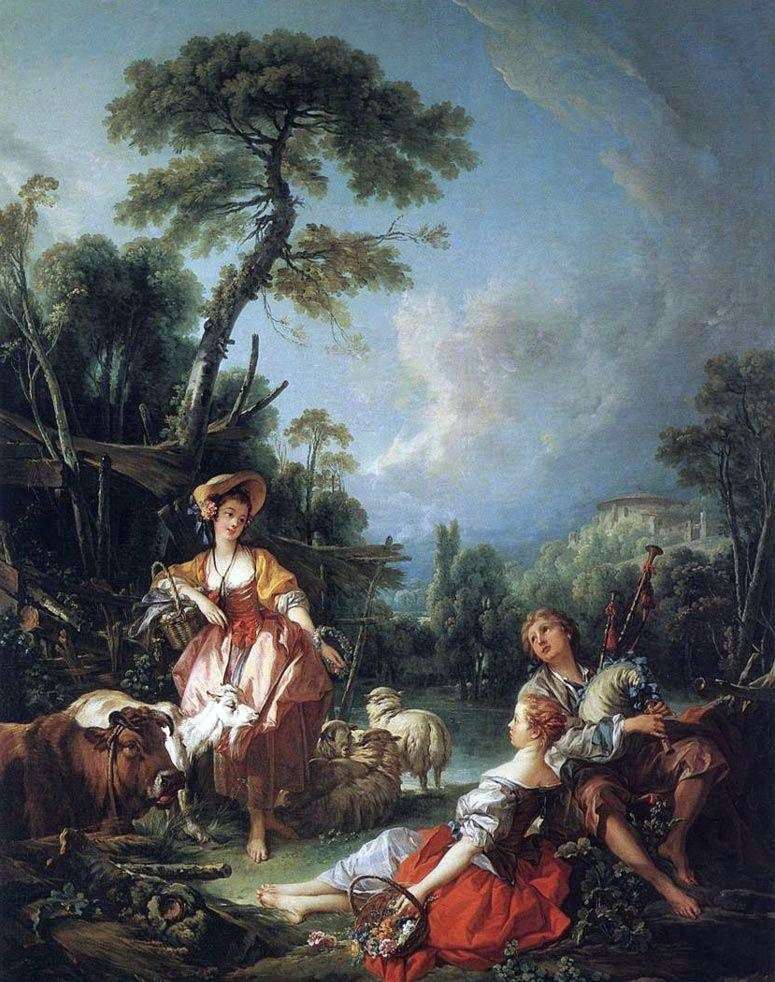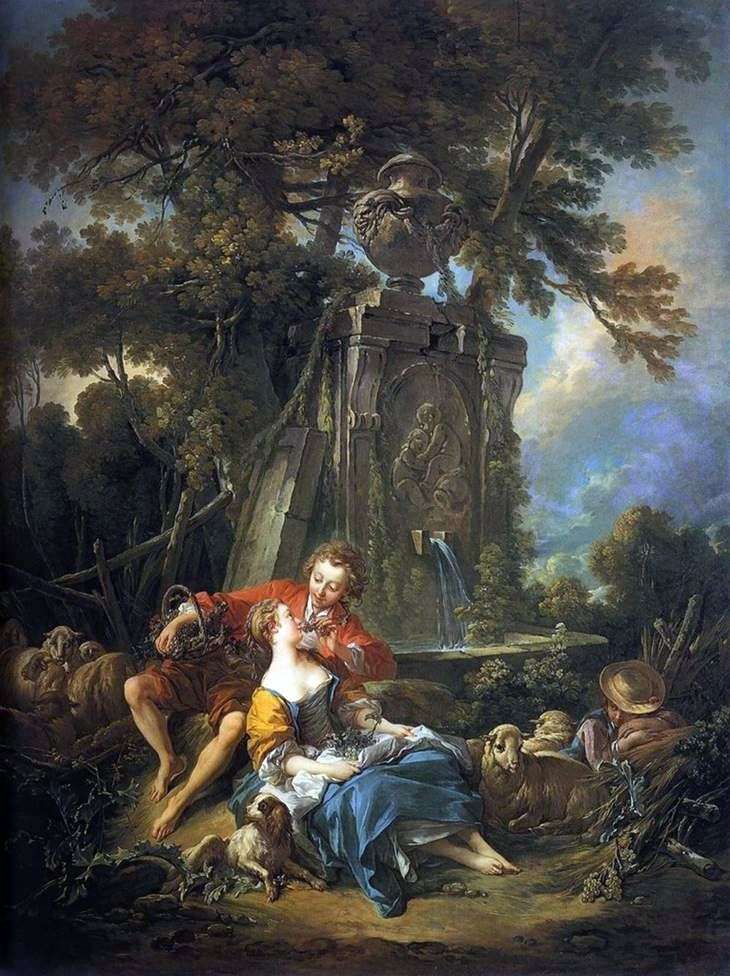
A painting by French artist Francois Boucher “Summer Pastoral”. The size of the picture is 259 x 197 cm, canvas, oil. As is known, the pastoral tendency is the desire to oppose the noisy and vain life of big cities to quiet nature, the simple and supposedly carefree life of rural residents. For example, in the famous novel “Arcadia” Sannazzaro, the pastoral tendency permeates every line.
The author frankly expresses it in the preface, assuring the readers that the forest birds chirping in the shade of the green leaves are more captivating to our ears than their city sisters sitting in gilded cages, that the simple tunes of the shepherds are infinitely higher than the solemn songs that are heard in the royal palaces and etc. Sannatsaro leads the story in his own name and tells how, driven by unhappy love, he retired to Arcadia and found, on the top of the Partia mountain, a charming valley where the nearby shepherds met daily, practiced shooting from the Lu in a javelin throw, they sang, danced, and on holidays arranged poetic contests among themselves.
The description of these entertainments is the content and main interest of the novel. The conversations of the shepherds are too subtle and do not correspond to their simple way of life: they do not seem like real shepherds, but disguised as shepherds in the dress of the shepherds’ lives. Despite this, “Arcadia” was a huge success, withstood in Italy, during the XVI century, about 60 publications and was translated into many European languages. In the 17th century, a pastoral romance in France was replaced by a heroic and real-life novel, and the pastoral sought refuge in the drama.
By the end of the XVIII century pastoral art ceases to be popular throughout Europe. With the exception of the idyll of the “Zurich Theocritus”, Hessner, who found their echo in France, and some of the poems by Andre Chenier, there is nothing like that that could be put above mediocrity.
In the XIX century, when art, in addition to artistic expressiveness, began to set itself wide public tasks, the pastoral not only goes out of fashion, but also completely ceases to exist.
 Catchers of birds by Francois Boucher
Catchers of birds by Francois Boucher Autumn Pastoral by Francois Boucher
Autumn Pastoral by Francois Boucher Fountain of Love by Francois Boucher
Fountain of Love by Francois Boucher Pastoral de verano – François Boucher
Pastoral de verano – François Boucher The modist by Francois Boucher
The modist by Francois Boucher The Mill in Sharaton by Francois Boucher
The Mill in Sharaton by Francois Boucher Pastoral de otoño – Francois Boucher
Pastoral de otoño – Francois Boucher Sunset by Francois Boucher
Sunset by Francois Boucher